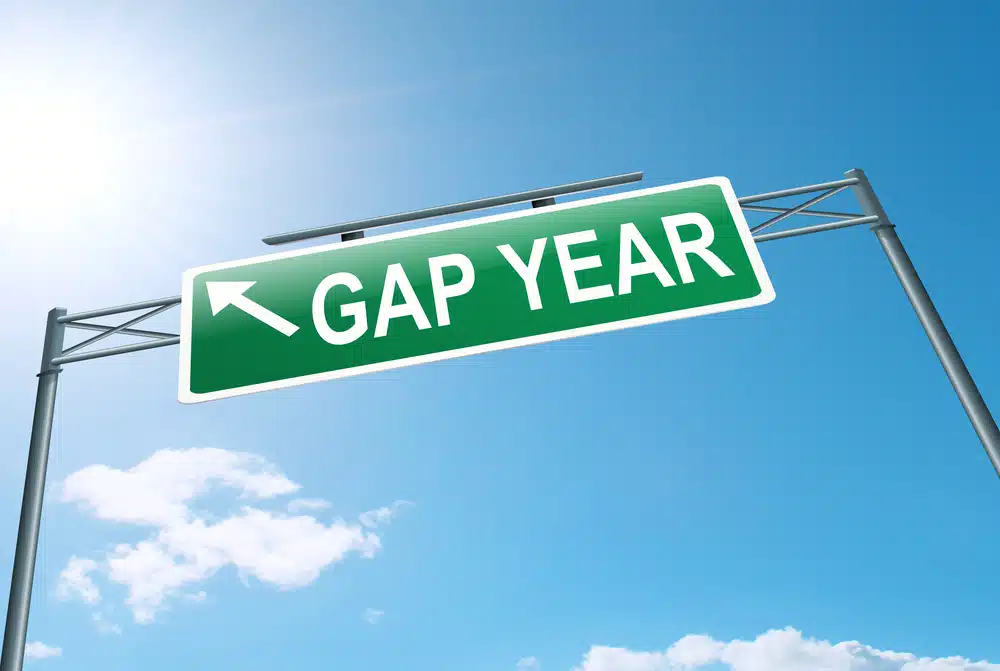Colleges That Allow Gap Years
The concept of a gap year, or taking a year off between high school and college, is rapidly gaining popularity among students in the United States and around the world. Key influencers in this trend include a desire for personal growth, the opportunity to explore one’s passions, and the potential for real-world experiences outside the classroom. This article aims to provide comprehensive information about gap years and the policies of various types of colleges towards them.
Understanding the Concept of a Gap Year
At its core, the gap year is a break between high school and college. It’s a chance for students to step outside the traditional educational trajectory and carve their unique path. The purpose and activities during this time can considerably vary, depending on personal goals and circumstances. It can range from traveling or volunteering abroad to engaging in creative projects, internships, or part-time work.
During a gap year, students have the opportunity to explore their interests and passions in a more hands-on and immersive way. For example, a student interested in marine biology may choose to spend their gap year volunteering at a marine conservation organization, gaining practical experience and knowledge that can greatly enhance their future studies. Similarly, a student with a passion for photography may use their gap year to travel to different countries, capturing stunning images and building a portfolio that can open doors to future opportunities.

The Origins of Gap Years
While it seems like a relatively new idea in the United States, the concept of taking a gap year has been prevalent in many European countries for decades, especially in the U.K., where the practice began during the 1960s as a way to fill the 7 or 8-month gap between final exams and university enrollment. Over time, this practice evolved into a full-year experience focused on personal development and experiential learning.
One of the key factors that contributed to the popularity of gap years in Europe was the recognition of the value of non-traditional learning experiences. Universities and employers began to appreciate the unique skills and perspectives that students gained during their time away from formal education. This shift in perception led to a more accepting and supportive environment for students who chose to take a gap year.
The Benefits and Drawbacks of Taking a Gap Year
There is a significant body of evidence that substantiates the numerous benefits of taking a gap year. These include enhanced self-awareness, increased maturity, improved academic performance upon return, and a sharper focus on career goals. For some, a gap year even acts as a catalyst in defining their life’s purpose and passion.
During a gap year, students have the freedom to explore different areas of interest without the pressure of grades or academic requirements. This can lead to a deeper understanding of their strengths and weaknesses, as well as the discovery of new passions and talents. Additionally, the experiences gained during a gap year can provide valuable real-world context to academic studies, making the learning process more meaningful and relevant.
On the flip side, there are potential drawbacks to consider. Financial constraints, the fear of being left behind peers, or the risk of losing academic momentum are a few concerns that deter students. However, with careful planning and research, many of these challenges can be overcome. Scholarships, grants, and fundraising efforts can help alleviate financial burdens, and universities are increasingly recognizing the value of gap years and providing support and resources for students who choose to take this path.
In conclusion, the concept of a gap year offers students a unique opportunity to explore, grow, and gain valuable life experiences outside of the traditional educational system. It is a time of self-discovery, personal development, and the pursuit of passions. While there are challenges and potential drawbacks, the benefits far outweigh them for many individuals. Whether it’s through travel, volunteering, or pursuing creative projects, a gap year can be a transformative and enriching experience that sets the stage for future success.
Colleges That Allow Gap Years: How Their Policies Differ
The stance on gap years varies greatly among different types of colleges. Some actively encourage this break, offering deferred admission or even special programs to facilitate the gap year experience, while others are less supportive.
However, it is important to note that the policies and attitudes towards gap years are not only influenced by the type of college but also by the individual institutions within each category.

Liberal Arts Colleges and Gap Years
Many Liberal Arts Colleges have a positive attitude toward gap years, acknowledging the personal growth and maturity that a thoughtfully planned year off brings. These colleges recognize that students who take a gap year often return to campus with a renewed sense of purpose and a deeper understanding of themselves and the world around them.
Colleges such as Middlebury and Bates even offer admitted students the option of a pre-approved gap year. This means that students can defer their enrollment for a year and have the assurance that their spot in the incoming class is secured. During this gap year, students are encouraged to pursue meaningful experiences such as volunteering, interning, or traveling.
Liberal Arts Colleges also provide resources and support to students who are considering a gap year. They have dedicated advisors who can help students plan their gap year activities and ensure that they align with the college’s academic and personal development goals.
Research Universities and Gap Years
Research Universities, too, are increasingly recognizing the benefits of taking a gap year. These institutions understand that a gap year can provide students with valuable experiences that enhance their academic and personal growth.
Many Research Universities, such as Princeton University and the University of North Carolina, have programs dedicated to advising and supporting students who wish to take this path. These programs provide guidance on how to make the most of a gap year, including helping students find relevant internships, research opportunities, or service projects.
Research Universities also value the diverse perspectives and experiences that gap-year students bring to their campus. They understand that students who have taken a gap year often have a broader worldview and are more motivated to make the most of their college education.
Community Colleges and Gap Years
Community Colleges, on the other hand, often have more flexible enrollment policies, which allows students to start their studies at any time, making them particularly suitable for those considering a gap year.
In some cases, students even choose to spend part of their gap year studying at a community college to maintain academic momentum. This allows them to continue their education while exploring different subjects or interests before transferring to a four-year institution.
Community Colleges also provide support to students who are considering a gap year. They have advisors who can help students navigate the enrollment process and ensure a smooth transition back to college after the gap year.
Additionally, community colleges often offer a wide range of programs and courses that cater to the diverse interests and goals of gap-year students. Whether it’s taking general education classes or pursuing a specific vocational or technical skill, community colleges provide a flexible and affordable option for students during their gap year.
In conclusion, while the policies on gap years may vary among different types of colleges, it is clear that many institutions recognize the value of taking a well-planned break before starting college. Whether it’s Liberal Arts Colleges, Research Universities, or Community Colleges, each type of institution offers unique resources and support to students who choose to embark on a gap year journey.

How to Apply for a Gap Year
Applying for a gap year requires careful planning, clear communication, and a thorough understanding of potential pros and cons. Embarking on a gap year can be an exciting and transformative experience, allowing you to gain valuable skills, explore new cultures, and develop a deeper understanding of yourself and the world around you. However, before you can embark on this adventure, there are a few important steps you need to take to ensure a successful application process.
Preparing Your Gap Year Proposal
Creating a proposal for your gap year starts with clarifying your objectives. It’s essential to showcase how your planned activities relate to these goals. Whether you’re planning to volunteer abroad, intern at a local organization, or travel to different countries to immerse yourself in different cultures, it’s crucial to articulate how these experiences will contribute to your personal and academic growth. A better-defined and structured proposal often leads to more positive responses from colleges.
When preparing your gap year proposal, take the time to research various programs and opportunities that align with your interests and goals. Consider the skills you hope to gain, the knowledge you want to acquire, and the impact you want to make. By having a clear vision of what you want to achieve during your gap year, you can create a compelling proposal that showcases your passion and commitment.
Additionally, it’s important to think about the logistics of your gap year. Consider factors such as budget, safety, and support networks. Research the countries you plan to visit, understand their customs and traditions, and familiarize yourself with any necessary visas or permits. By addressing these practical aspects in your proposal, you demonstrate your preparedness and responsibility.
Communicating with College Admissions
Transparent communication with college admissions is vital when applying for a gap year. It is advisable to research a college’s gap year policy well before accepting an offer. Some colleges may have specific guidelines and requirements for gap year applicants, so it’s crucial to familiarize yourself with these details.
When communicating with college admissions, be prepared to express your reasons for wanting a gap year and how it aligns with your long-term goals. Emphasize the skills and experiences you hope to gain during your time away from academia and how these will contribute to your personal and academic development. Highlight any relevant achievements or experiences that demonstrate your readiness for a gap year, such as previous travel experiences, volunteer work, or internships.
Furthermore, it’s important to address any concerns that college admissions may have regarding your gap year. Assure them that you have a plan in place to stay academically engaged during your time away and that you will be proactive in maintaining communication with the college. By demonstrating your commitment to your education and your ability to balance academic and experiential learning, you can alleviate any doubts or reservations they may have.
Remember, applying for a gap year is an opportunity to showcase your maturity, independence, and ability to take initiative. By carefully preparing your gap year proposal and effectively communicating with college admissions, you can increase your chances of being granted a gap year and embark on a transformative journey that will shape your future.
Making the Most of Your Gap Year
A well-spent gap year can bring a host of benefits to a student’s personal and academic life. However, it requires careful planning and proactive behavior.
Planning Your Gap Year Activities
Regardless of the segment, your gap year plan has to be executable and methodical. The options are nearly limitless—volunteering, internships, travel, academic programs, creative endeavors—but should be chosen in a way that enhances personal development and diversity of experience.
Staying Academically Engaged During Your Gap Year
To keep your academic skills sharp during your gap year, consider enrolling in an online course, reading regularly in your field of interest, or even working on an academic research project. This way, you not only enrich your gap year but also make the academic transition back to college smoother.
Returning to College After a Gap Year
Returning after a gap year can be an era of re-adjustment. But with the right approach, it can also be an exciting time of re-integration and re-focus.
Readjusting to Academic Life
The transition back to academic life after a year away from formal education can be challenging. It’s important to ease back into the academic rhythm gently, maintain good study habits, and seek help when necessary.
Utilizing Your Gap Year Experience in College
The experiences and skills acquired during a gap year can significantly enrich a student’s college life. They can offer fresh perspectives in classroom discussions, form the basis for enriching personal essays, or inspire new academic and career pathways. Ultimately, students who have taken a gap year are often more engaged, more focused, and more ready to seize their college experience.
Overall, the trend for taking a gap year is growing. By weighing the benefits and drawbacks, understanding college policies, and crafting a thought-out plan, students can make the most of their gap year, preparing them not just for college but for life.

How AdmissionSight Can Help You With College Admissions
AdmissionSight is a college consulting firm that provides personalized assistance to students throughout the college admissions process. Here are some ways that AdmissionSight can help you:
Admissions strategy: AdmissionSight can help you develop a strategic plan for your college application process. Our professional consultants can assist with identifying schools that are a good fit for your academic, extracurricular, and personal goals and help you plan and prioritize your application strategy.
Application review: AdmissionSight can review your application and provide feedback on how to improve it. We can offer suggestions on making your application stand out and highlighting your strengths and unique qualities.
Essay coaching: AdmissionSight can help you craft compelling essays that showcase your personality, goals, and achievements. We can guide you through the essay writing process and provide feedback on your drafts to help you refine your writing.
Interview preparation: AdmissionSight can provide interview coaching to help you feel confident and prepared for college interviews. Our experts can offer tips on how to present yourself professionally and how to answer common interview questions.
Extracurricular planning: AdmissionSight can help you plan and develop your extracurricular activities to make them more impactful and meaningful. We can suggest activities that align with your interests and goals and provide guidance on demonstrating your leadership and initiative.
Overall, AdmissionSight can provide valuable guidance and support throughout the college admissions process to help you maximize your chances of getting accepted into the college of your choice.
With a high success rate of over 75%, we have built a strong network in the past decade. Book an initial consultation today, free of charge!





































